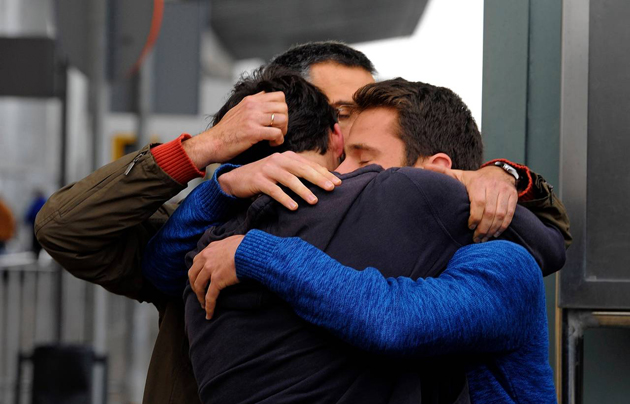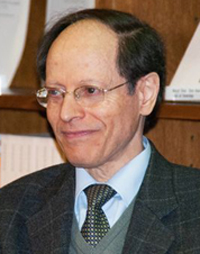Spanish evangelical psychiatrist Pablo Martínez talks about Andreas Lubitz’s behaviour and the mourning of the families.
 Travelers comfort each other at Barcelona’s airport upon hearing the news of Tuesday’s plane crash. / AP
Travelers comfort each other at Barcelona’s airport upon hearing the news of Tuesday’s plane crash. / AP
It is difficult to know what was happening in Andreas Lubitz’s mind when, according to the French prosecutors, he was flying the plane into the mountains, knowing that he was going to kill the 149 passengers on board the Germanwings flight.
One of the main questions that everybody is trying to answer is if the check ups that pilots need to pass, in order to know if they are capable of doing their job, are exhaustive enough.
Likewise, the fact that what it seemed to be an accident turned out to be a deliberate act of murder might affect the way families and friends deal with their loss.
 Pablo Martínez.
Pablo Martínez. Evangelical psychiatrist Pablo Martínez Vila talked to Protestante Digital about these issues.
Question. Is it possible that psychological tests like these fail? Are they reliable?
Answer. I do not know the procedures that airlines follow regarding psychological testing, so I cannot give an accurate answer. I suppose the tests the pilots pass are exhaustive, but they are never infallible, because, in mental health, the “perfect test” which can give us a definitive conclusion does not exist. Besides, the diagnosis in psychiatry is very dynamic, it changes in weeks or months. So that it is mandatory to do have regular exhaustive check ups.
Psychological tests only give us an approximate vision of the reality, never a definitive one. The conversation, the medical records, the gestural communication, or an interview with the family, are as important as the tests. All this is probably difficult to carry out in a normal selection process, but in those professions where the job of someone can affect others, the controls should be more exhaustive.
Q. Is it possible for an expert to foresee extreme behaviour like the one that led the co-pilot to do what he did?
A. In most cases an expert knows the risks that a patient has to hurt himself and others, and he acts accordingly. That is why the responsibility of psychiatrists and psychologists is so important. However, as we said before, there is always a margin for the unexpected, and pathologies can be hidden, especially delirious ones.
Obviously, that makes the diagnosis even harder. Paranoiac patients seem normal to the eyes of society, only those close to them know how altered their thought is regarding a specific issue (jealousy, persecution complex, etc.)
Q. Is it harder for the families to recover, knowing that the accident was an intentional act?
A. The mourning for a sudden, unexpected death is always very intense, and it can easily end up in a pathological mourning. The fact that it was a homicide and not an accident, does not especially affect the nature of the mourning per se. I actually allow people to channel their rage, the anger (one of the most common reactions in these situations) towards a specific person. That facilitates the catharsis of the rage.
FAMILIES WITH QUESTIONS UNANSWERED
Evangelical psychologist Lidia Martín also commented on the topic.
“When the damage is done by human hands, it is harder to accept. The murderer is gone with thousands of unanswered questions”, Martín explained. “That could end up in a pathological mourning. It is the difference between `he has died´ and ´he was killed'”, she concluded.

Las opiniones vertidas por nuestros colaboradores se realizan a nivel personal, pudiendo coincidir o no con la postura de la dirección de Protestante Digital.
Si quieres comentar o